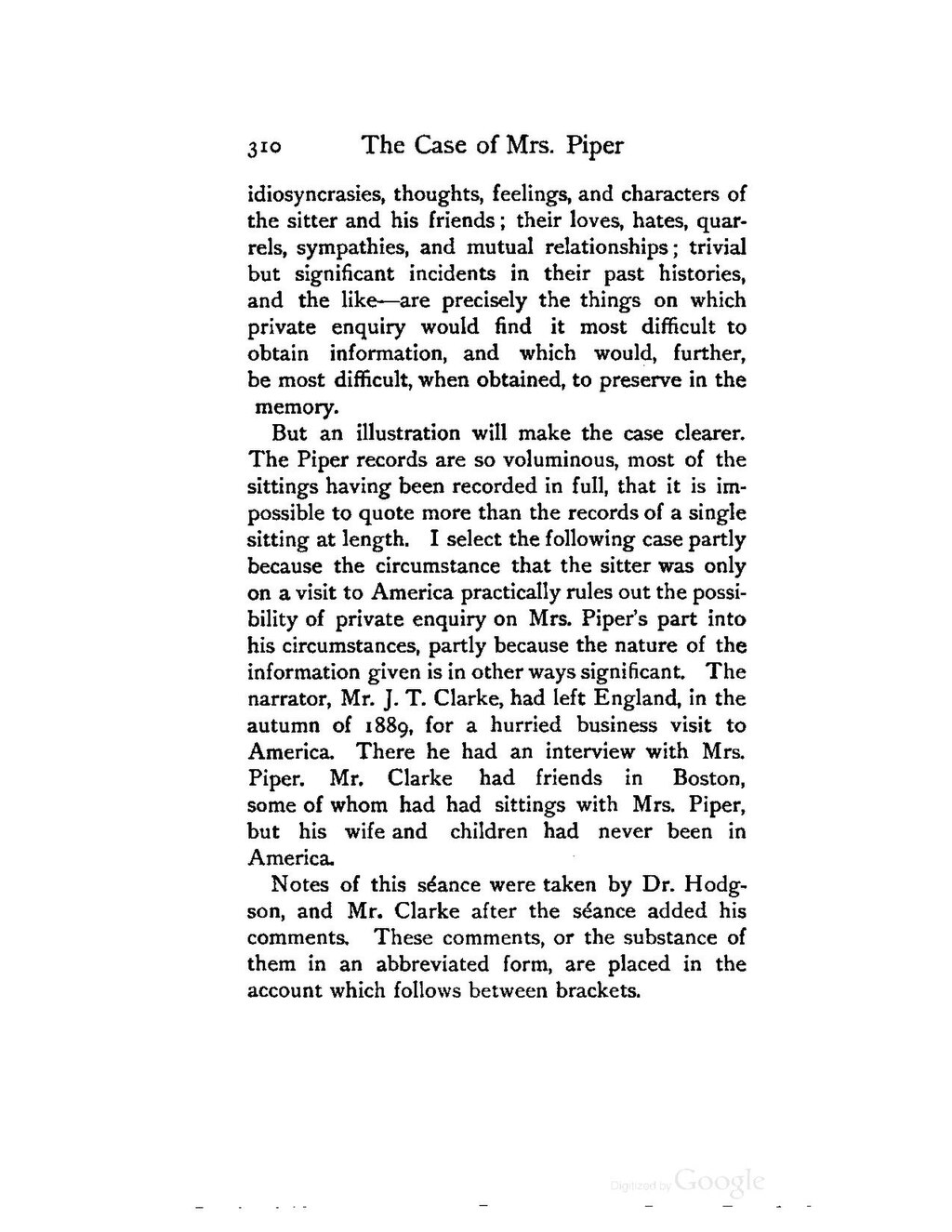idiosyncrasies, thoughts, feelings, and characters of the sitter and his friends; their loves, hates, quarrels, sympathies, and mutual relationships; trivial but significant incidents in their past histories, and the like—are precisely the things on which private enquiry would find it most difficult to obtain information, and which would, further, be most difficult, when obtained, to preserve in the memory.
But an illustration will make the case clearer. The Piper records are so voluminous, most of the sittings having been recorded in full, that it is impossible to quote more than the records of a single sitting at length. I select the following case partly because the circumstance that the sitter was only on a visit to America practically rules out the possibility of private enquiry on Mrs. Piper's part into his circumstances, partly because the nature of the information given is in other ways significant. The narrator, Mr. T. Clarke, had left England, in the autumn of 1889, for a hurried business visit to America. There he had an interview with Mrs. Piper. Mr. Clarke had friends in Boston, some of whom had had sittings with Mrs. Piper, but his wife and children had never been in America.
Notes of this séance were taken by Dr. Hodgson, and Mr. Clarke after the séance added his comments. These comments, or the substance of them in an abbreviated form, are placed in the account which follows between brackets.

